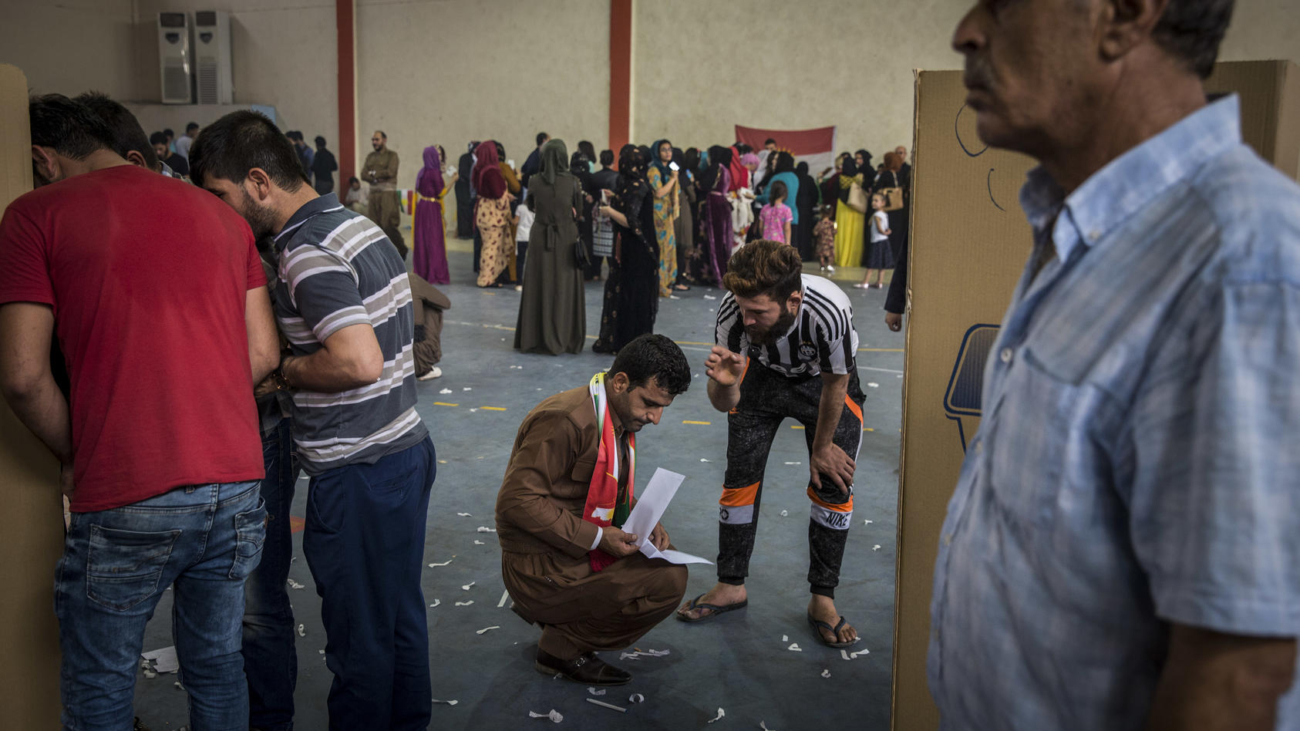Iraq Danger Grows After Kurdistan Independence Vote
This piece was originally published on the U.S. Institute of Peace website usip.org
Iraqi political leaders in Baghdad and Erbil, the Kurdistan regional capital, have escalated their rhetoric this week, as Kurdish officials reported 92 percent approval of the Sept. 25 nonbinding vote on independence for the region. The verbal volleys and intensifying actions risk triggering another outbreak of violent conflict.
The danger will grow in the runup to the regional government elections on Nov. 1 and Iraq-wide parliamentary and provincial elections scheduled for April. Iraqi leaders and the international community need to act quickly to cool the incitement and facilitate a dialogue that prevents violence and produces a path forward.
When elections loom in Iraq, politicians tend to revert to form—hot rhetoric appealing to ethnic and sectarian divisions. In 2013 and 2014, the focus was on exploiting divisions between Sunnis and Shia. Today, it’s centered on Arabs and Kurds.
The Kurdistan region has enjoyed semi-autonomous status since 1992, and many Iraqis, including Shia and Sunni political leaders, might have been willing to part with some areas, other than oil-rich Kirkuk. But more recently, leaders in Baghdad oppose the region’s independence, fearing it would weaken their political standing with their constituents and with Middle Eastern neighbors such as Iran and Turkey.
Some have been particularly strident in condemning the vote. Former Prime Minister Nouri al-Maliki, who heads a powerful Shia bloc in parliament, called the referendum “a declaration of war on the unity of the Iraqi people.” Some factions of the Shia Popular Mobilization Forces (PMF) have threatened to go to war over the disputed city of Kirkuk. Terms such as “rebel” and “separatist” that Saddam Hussein and his Ba’athist party used against the Kurds the 1970s and 1980s are reappearing in Baghdad politics.
Prime Minister Haider al-Abadi is taking a tougher stance as well. A majority in the Iraqi parliament today directed him to send troops into disputed territories currently held by the Kurdish Peshmerga forces, including Kirkuk. Carrying out that instruction could lead to armed confrontation.
The 2013 and 2014 elections offer an ominous preview. Political leaders from the different communities of Iraq similarly promoted sectarianism to win their base. Some Shia leaders portrayed the Sunnis as terrorists or sympathizers and Sunni areas as incubators of terrorism. Sunnis, by turn, cast the Shia as oppressors and proxies of Iran.
These rhetorical campaigns inflamed the public on both sides, but especially the Sunnis, who felt their leaders had already been sidelined in Baghdad. The resulting loss of faith in the political system and in elections ultimately opened the door for ISIS and years of internal violence.
Today, with ISIS driven from most of Iraq—with help from the PMF and Kurdish Peshmerga— Baghdad and Erbil are maneuvering for control over long-disputed territories in Kirkuk, Diyala, Salahaddin and Nineveh. Armed units are positioned along hundreds of miles of front lines. Any spark—a single shooting, or troops crossing into territory held by other forces, for example—could ignite a battle.
The U.S. and others in the international community, while acknowledging the region’s right to hold a referendum at some point, almost unanimously opposed the timing as a threat to an already unstable Middle East. It’s even more critical in the aftermath of the vote that international supporters urge leaders in Baghdad and Erbil toward direct talks to de-escalate tensions and develop a political process for resolving the central issues.

